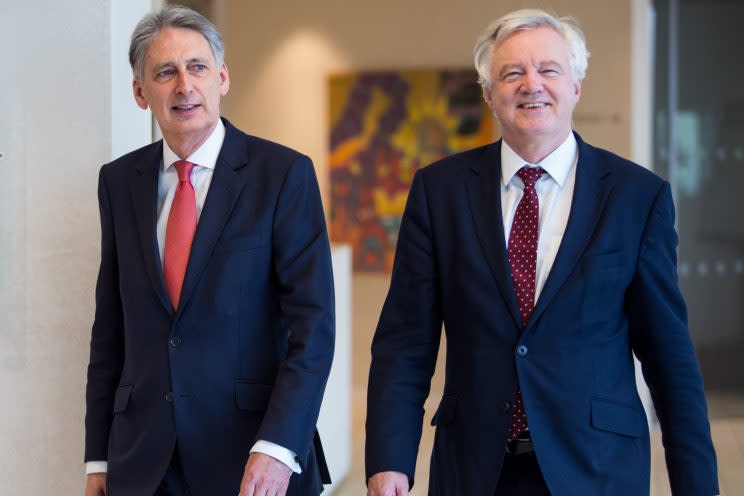Brexit: UK being forced to budge on immigration in return for free trade

The chances of Britain securing a ‘cake and eat it’ Brexit deal look to have been all but abandoned, according to reports.
Instead, ministers are resigned to accepting compromises which could see better trade agreements signed off in exchange for a level of continued political control from Brussels.
Whitehall sources quoted in the Guardian say Theresa May’s tough stance on Brexit – where she publicly says Britain can get a great free trade deal while also being able to limit free movement of people – is looking increasingly flimsy.
MORE: 7 charts that show Theresa May’s Britain is not ‘strong and stable’
What is now emerging as more likely is a watering down of one element or another.
“We have a problem in that really there are only two viable options,” one official told the Guardian.
“One is a high-access, low-control arrangement which looks a bit like the EEA [European Economic Area]. The other is a low-access, high-control arrangement where you eventually end up looking like CETA [Comprehensive Economic and Trade Agreement] – a more classic free trade agreement, if you are lucky.”
European Economic Area deals allow countries such as Norway and Iceland to be members of the EU’s single market in exchange for accepting free movement while not signing up to common fisheries policy, for example.
Ceta refers to the recently-struck deal between the EU and Canada which will see the bulk of import duties of goods between the two cut.
MORE: Brexit-bound UK withdraws from fishing pact
“What we’ve seen post-election is that business voices that had felt bullied into silence pre-election are recovering their voice,” a senior official said.
“The economic arguments that had got lost in the last six months are now being heard again and those who had tried to railroad this by saying you are talking your country down are being given a run for their money.”
MORE: Frankfurt is upping the stakes in the battle for post-Brexit banking jobs
Cabinet splits on Brexit have been bubbling up over recent weeks with Chancellor Philip Hammond and Brexit secretary David Davis reportedly clashing.
Hammond is known to want to put economic stability ahead of sovereignty while hardline Brexiteers believe giving any ground on immigration and border controls would represent a betrayal of the referendum result.
Meanwhile, it has also emerged today at a delegation of City of London business leaders is to visit Brussels this week to press for a post-Brexit deal on financial services.
The move comes as the EU looks to take much of the multi-billion pound euro clearing sector out of London and into Europe.

 Yahoo Finance
Yahoo Finance 
